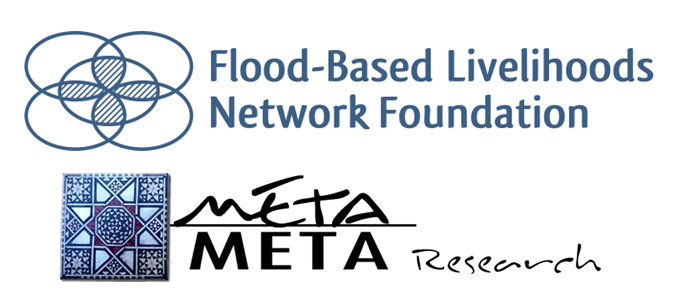November 17, 2021
by Reinier Veldman | 0 Comment
A combined approach to assess groundwater resources depletion in data-scarce areas; a case study in Wadi Zabid, Yemen
Title: A combined approach to assess groundwater resources depletion in data-scarce areas; a case study in Wadi Zabid, Yemen Author: Wahib Saif Mohsen Al-Qubatee Type: PhD thesis Description: Steady groundwater depletion resulting from overexploitation of groundwater is a problem in many arid and semi-arid regions. Hydro-economic models are often used to study groundwater depletion, to
June 28, 2021
by Marina Vara | 0 Comment
Upstream, Downstream – Conveying Water and Ideas: Potentials for IWRM in Wadi Zabid, Yemen
Title: Upstream, Downstream – Conveying Water and Ideas: Potentials for IWRM in Wadi Zabid, Yemen Author: Carmen Celine Tyndale From Dalseng Type: Thesis Year: 2014 Description: This thesis investigates what the potential for IWRM is in Wadi Zabid, an area in western Yemen suffering from water resource troubles. It analyses the concept IWRM and sees
June 25, 2021
by Marina Vara | 0 Comment
Implementation Completion and Results Report
Title: Implementation Completion and Results Report Author: Worldbank Type: Report Year: 2009 Description: This report describes the completion of implementation and the results for an IIP project in the Republic of Yemen. It covered lots of other wadis besides wadi Zabid and wadi Tuban.
June 25, 2021
by Marina Vara | 0 Comment
Potential Assessment of Flood Based Farming on lower Omo Ghibe Basin (draft)
Title: Potential Assessment of Flood Based Farming on lower Omo Ghibe Basin (draft) Authors: Eyasu Yazew, Atinkut Mezgebu, Tesfa-alem Gebreegziabher Embaye Daniel Teka and Ermias Alemu Type: Document Year: 2015 Description: Report of the research to find out the effects of the Omo Ghibe basin, Ghibe I, II and III hydropower development dams on the
June 25, 2021
by Marina Vara | 0 Comment
Multi Reservoir Operation and Challenges of the Omo River Basin: Part II Assessment of Flood-based Farming on lower Omo Ghibe Basin
Title: Multi Reservoir Operation and Challenges of the Omo River Basin: Part II Assessment of Flood-based Farming on lower Omo Ghibe Basin Author: Eyasu Yazew (PhD), Atinkut Mezgebu (PhD), Tesfa-alem Gebreegziabher Embaye, Daniel Teka (PhD), Ermias Alemu Year: 2015 Description: This report describes the research targeting at assessing the impact of upstream developmental interventions on
June 25, 2021
by Marina Vara | 0 Comment
Predicting Runoff and Sediment for IJa Galma Waqo Spate Irrigation System
Title: Predicting Runoff and Sediment for IJa Galma Waqo Spate Irrigation System Author: Eyob Yehayis Type: MSc thesis Year: 2010 Description: Thesis on East Harrarghe (Ethiopia) using SWAT model.
June 25, 2021
by Marina Vara | 0 Comment
Rod-Kohi System Development and Management in Pakistan – a National Project
Title: Rod-Kohi System Development and Management in Pakistan – a National Project Author: Water Resources Research Institute, National Agricultural Research Center Type: Report Year: 2001 Description: The final report of the eight year long research project on spate irrigation in Pakistan by Water Resources Research Institute. It describes spate systems (also called Rod-Kohi) in the
June 25, 2021
by Marina Vara | 0 Comment
The Korakan River (a study on Flood Irrigation)
Title: The Korakan River (a study on Flood Irrigation) Author: WUA Liaison Section Type: Document Year: 1994 Description: This document is a description of collective soil bunds in the Korakan river, including an agro-economic profile of Kharan District.
June 25, 2021
by Marina Vara | 0 Comment
Atlas of sorghum production in East and South Africa and Poster
Title: Atlas of sorghum production in East and South Africa and Poster Authors: Charles S. Wortmann et al. Type: Document Year: 2006 Description: The Atlas of Sorghum Production in Eastern and Southern Africa presents information on sorghum in nine countries to serve information needs of researchers, extension and rural development specialists, policy makers, and emergency
June 25, 2021
by Marina Vara | 0 Comment
Atlas of sorghum production in East and South Africa and Poster
Title: Atlas of sorghum production in East and South Africa and Poster Authors: Charles S. Wortmann et al. Type: Document Year: 2006 Description: The Atlas of Sorghum Production in Eastern and Southern Africa presents information on sorghum in nine countries to serve information needs of researchers, extension and rural development specialists, policy makers, and emergency
